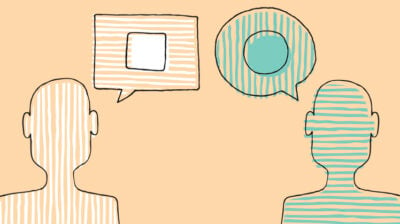What is ADHD?
Learn more about ADHD symptoms, causes, and types.

If you find yourself talking excessively, struggling with focus or concentration, experiencing fast-moving thoughts, and powering ahead without any filter between thought and action, you might be wondering if you have attention-deficit/hyperactivity disorder (ADHD). ADHD is one of the most common neurodevelopmental conditions. Neurodevelopmental conditions like ADHD and Autism (sometimes referred to as Autism Spectrum Disorder) affect how the brain develops and functions, leading to differences in how a person relates to others, manages their emotions, and performs in an educational or workplace setting.
In Ireland, ADHD affects about 1 in 20 children and adolescents, with about one-third of young people attending Child and Adolescent Mental Health Services (CAMHS) diagnosed with the condition. Globally, prevalence rates (i.e., the percentage of people in a population who have a specific condition or characteristic at a given time) are twice as high in boys (10 per cent) compared to girls (5 per cent).
In this factsheet, you’ll learn about the symptoms, possible causes, and types of ADHD, as well as related conditions.
How do I know if I have ADHD?
Occasionally feeling distracted, forgetful or restless is common to everyone and is unlikely to indicate that you have ADHD. To diagnose the condition, a mental health professional like a psychiatrist or psychologist needs to make sure you meet specific conditions—known as “diagnostic criteria”—outlined in the Diagnostic and Statistical Manual of Mental Disorders, 5th Edition (DSM-5) or the International Classification of Diseases 11th Edition (ICD-11). The DSM-5 and ICD-11 are separate professional guides that healthcare professionals use to diagnose medical conditions, mental health conditions, and neurodevelopmental conditions.
The next section provides information on some of the guidelines used to diagnose ADHD. This information is for educational purposes only. Only a trained mental health professional can make an accurate diagnosis after a detailed assessment.
Symptoms of ADHD
The DSM-5 lists a variety of symptoms of both inattention and hyperactivity-impulsivity characteristic of ADHD.
Symptoms of inattention include:
- Difficulty holding attention on tasks or play activities
- Difficulty following through on instructions and completing homework, schoolwork, chores, or duties in the workplace (e.g., losing focus, getting side-tracked)
- Difficulty organising tasks and activities
- Dislike or avoidance of tasks that require mental effort over a long period of time (e.g., schoolwork or homework)
- Frequently misplacing or losing things necessary for tasks and activities (e.g. school materials, pencils, books, tools, wallets, keys, paperwork, eyeglasses, mobile telephones)
Several symptoms of hyperactivity and impulsivity include:
- Frequently fidgeting, tapping hands or feet, or feeling restless in your seat
- Being unable to play or take part in leisure activities quietly
- Frequently blurting out an answer before a question has been completed
- Difficulty waiting your turn or waiting in line
- Interrupting or intruding on others (e.g., butting into conversations or games)
Beyond symptoms
To meet the DSM-5 criteria for an ADHD diagnosis, it’s not just about exhibiting certain symptoms. The symptoms must have persisted for at least 6 months, and they must interfere with your ability to function as expected for a person of your age and life stage. The person must also display a certain number of symptoms in order to meet the diagnostic criteria for the condition. Based on the guidelines, a mental health professional may make a diagnosis if, during the assessment process, they find the following:
- You had several inattentive or hyperactive-impulsive symptoms before age 12
- You show several symptoms in more than one setting, such as at home, school or work
- The symptoms interfere with your social, academic, and/or work life
- The symptoms cannot be better explained by another mental health condition, such as a mood disorder, anxiety disorder, or a personality disorder.
Finally, it’s important to remember that symptoms can vary depending on age, and they might change as a person transitions from childhood into adulthood. For example, hyperactivity in a child might mean they have difficulty sitting still, while in an adult, hyperactivity might feel like constant restlessness.
What are the three types of ADHD?
There are three types of ADHD, based on which category of symptoms is most visible:
- Predominantly inattentive presentation: The person tends to have difficulty remembering, organising, and completing tasks, following instructions, and paying attention closely to details
- Predominantly hyperactive-impulsive presentation: The person’s impulsivity might show as difficulty waiting their turn, speaking at inappropriate times, interrupting others, and being unable to listen carefully to instructions. Hyperactivity can cause the person to have a hard time sitting still for prolonged periods, fidgeting constantly, or feeling restless
- Combined presentation: The person shows symptoms of inattention and hyperactivity/impulsivity
What is the difference between ADD and ADHD?
You may have heard people referring to ADHD by its old name—attention-deficit disorder (ADD). Though still used regularly in everyday conversation, ADD is no longer considered a separate condition from ADHD, which includes all three subtypes or presentations described above.
Can you have ADHD without being hyperactive?
While hyperactivity is included in the name, it is still possible to have ADHD without being hyperactive. People who experience fewer than the cut-off number of symptoms of hyperactivity could still be diagnosed with inattentive ADHD.
Is ADHD a spectrum?
You may be wondering if people diagnosed with ADHD lie on a spectrum or whether someone can have a “mild case of ADHD”. There are no “borderline” cases of the condition. People either meet the diagnostic criteria (and are diagnosed with ADHD) or they do not. While people with the condition generally experience problems with attention, managing emotions (‘emotional regulation’), and/or impulsivity/hyperactivity, not everyone experiences the same difficulties or is affected by the condition to the same extent.
In general, treatment focuses less on whether a person meets the diagnostic criteria and more on the severity of their symptoms and how much these symptoms interfere with their daily tasks.
According to the DSM-5, a guide used by mental health professionals in diagnosing mental health conditions, the condition may be classified depending on the severity as:
- Mild ADHD: When a person shows the minimum number of symptoms required to get a clinical diagnosis, and these symptoms do not interfere a great deal with the person’s ability to work or have relationships
- Moderate ADHD: When a person is affected by ADHD symptoms between mild and severe
- Severe ADHD: When a person has more than the minimum number of required symptoms, and these symptoms significantly interfere with their ability to work and have relationships
What causes ADHD?
While the precise causes of ADHD are unknown, several factors are likely involved. These include:
- Genetic factors: A person is more likely to develop ADHD when a close relative (i.e., sibling or parent) has the condition. The pathway for inheriting the condition is believed to be complicated, and no single gene has been found to ‘cause’ ADHD
- Structure and function of the brain: Studies have found differences between the brains of people with ADHD and those without the condition. These differences include sizes of brain regions, as well as the number and function of certain brain chemicals (“neurotransmitters”)
- Non-genetic factors: It is thought that factors like smoking or extreme stress during pregnancy may also play a role in the development of ADHD
In addition, certain people are believed to carry a higher risk of developing ADHD than others, including those who:
- Were born prematurely (i.e., before the 37th week of pregnancy)
- Had a low birthweight
- Are living with epilepsy
- Are living with brain damage, which occurred before birth or as a result of a severe head injury later in life
Other conditions related to ADHD
Neurodevelopmental conditions like ADHD are not the same as mental health conditions. Not all people who have neurodevelopmental conditions experience mental health difficulties and not everyone who experiences mental health troubles has a neurodevelopmental condition. However, studies show that people with neurodevelopmental conditions are more vulnerable to experiencing mental health difficulties.
More than two-thirds of young people diagnosed with ADHD will be found to have a coexisting mental health condition or learning difficulty during their lifetime. The most common coexisting condition that is experienced by people with ADHD is anxiety.
However, ADHD can occur alongside other types of health conditions, not just mental health ones. For example, many people with the condition are also Autistic. Research suggests that between 50 and 70 per cent of people who are Autistic also have ADHD.
Below is a list of some of the most common conditions that can coexist with ADHD:
Tic disorders
- Motor tics (e.g., involuntary eye blinking, repeated gestures)
- Oral tics (e.g., blurting out words)
- Tourette’s syndrome (multiple motor and vocal tics that have been present for more than a year)
Mental health conditions
- Depression
- Anxiety disorders
- Obsessive Compulsive Disorder (OCD)
- Bipolar disorder
- Personality disorders
- Substance use disorder (SUD)
Learning difficulties
- Dyslexia (difficulties reading and processing information)
- Dysgraphia (difficulties spelling and getting thoughts on paper)
- Dyscalculia (difficulties doing maths)
- Dyspraxia (difficulties with coordination and movement)
Read more about getting a professional diagnosis of ADHD and accessing treatments.
To find support groups and resources while managing the condition, visit the ADHD Ireland website.
Feeling overwhelmed and want to talk to someone?
- Get anonymous support 24/7 with our text message support service
- Connect with a trained volunteer who will listen to you, and help you to move forward feeling better
- Whatsapp us now or free-text SPUNOUT to 50808 to begin.
- Find out more about our text message support service
If you are a customer of the 48 or An Post network or cannot get through using the ‘50808’ short code please text HELLO to 086 1800 280 (standard message rates may apply). Some smaller networks do not support short codes like ‘50808’.






